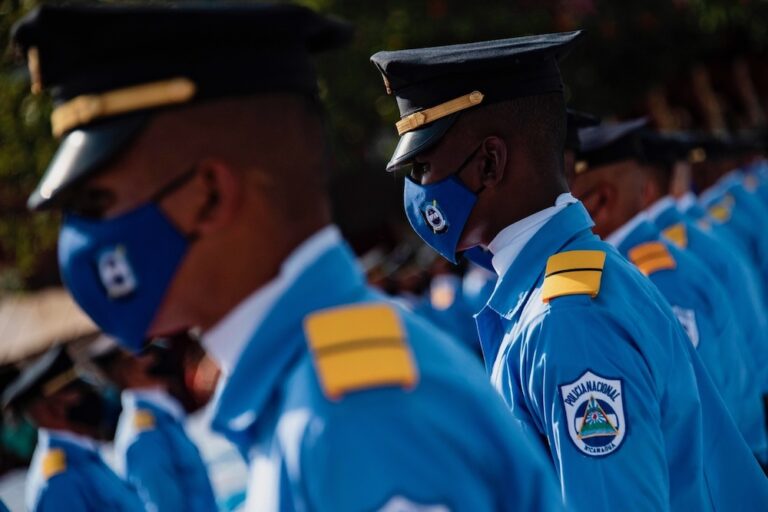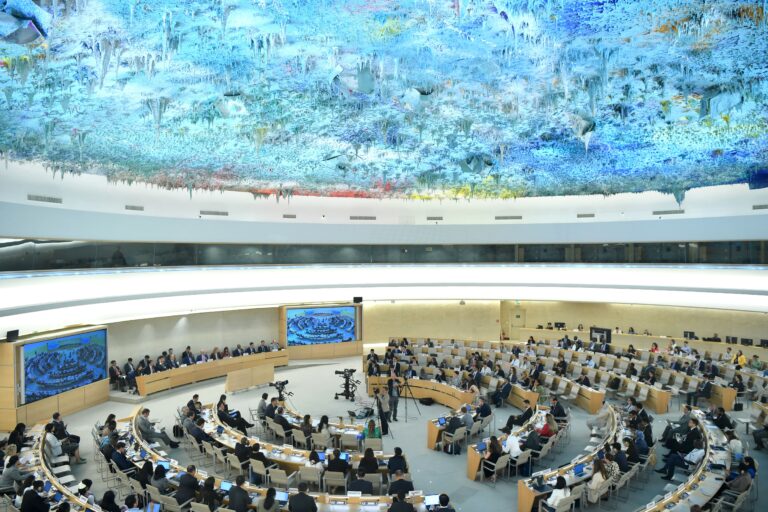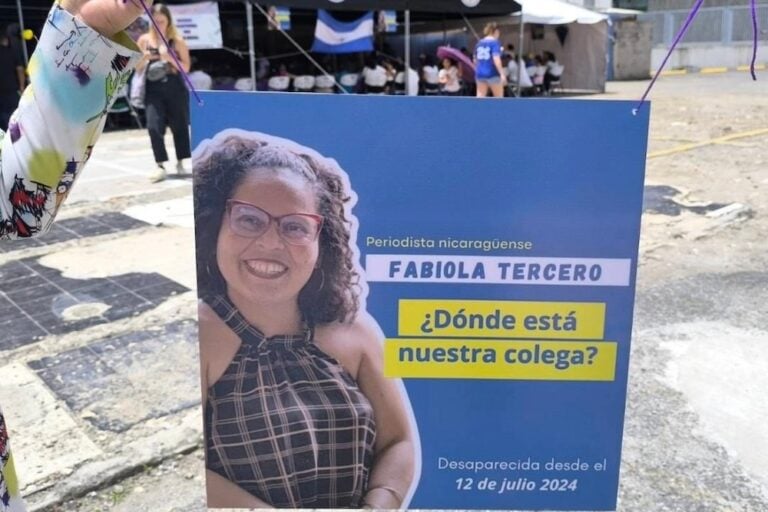(IAPA/IFEX) – The following is a 5 July 2001 IAPA press release: Nicaraguan presidential candidates pledge to uphold press freedom IAPA finds consensus against licensing law in Nicaragua, voices concern at self-censorship in Costa Rica MIAMI, Florida (July 5, 2001) – With a unanimous commitment from presidential candidates in Nicaragua to respect press freedom if […]
(IAPA/IFEX) – The following is a 5 July 2001 IAPA press release:
Nicaraguan presidential candidates pledge to uphold press freedom
IAPA finds consensus against licensing law in Nicaragua, voices concern at self-censorship in Costa Rica
MIAMI, Florida (July 5, 2001) – With a unanimous commitment from presidential candidates in Nicaragua to respect press freedom if they are elected in the November elections, the Inter American Press Association wound up a visit to that country and neighboring Costa Rica to promote the principles of freedom of expression enshrined in the Declaration of Chapultepec.
Sandinista Front candidate Daniel Ortega, Enrique Bolaños of the Constitutionalist Liberal Party and the Conservative Party’s Noel Vidaurre all signed the Declaration of Chapultepec on July 4, at the home of former Nicaraguan President Violeta Chamorro. It was the first time that the three candidates to succeed current President Arnoldo Alemán had met together. IAPA representatives welcomed each candidate’s pledge to respect and guarantee freedom of the press and free speech as fundamental values without which democracy cannot be sustained.
During the ceremony, IAPA Chapultepec Committee Chairman Alejandro Miro Quesada, hailed the “candidates’ unanimous point of view” but added that “we are concerned that in Nicaragua only three of the 10 Chapultepec principles are being fully complied with.” Miro Quesada, editor of the Lima, Peru, daily El Comercio, mentioned in particular the lack of access to public records, election campaign news blackouts and a new law requiring journalists to belong to a colegio in order to work legally.
The chairman of the IAPA’s Committee on Freedom of the Press and Information, Rafael Molina, criticized President Alemán’s policy on the granting of official advertising, charging him with “using public money to reward or punish the media as he sees fit.” Molina, editor of Ahora magazine, based in Santo Domingo, Dominican Republic, declared that “the IAPA today protests such action by the president against El Nuevo Diario, just as we did on previous occasions when Alemán employed the same policy to punish La Prensa and Barricada.”
A highlight of the evening occurred when Ortega, after signing the Declaration of Chapultepec and admitting there had been excesses regarding press freedom issues during his administration, said that “we have learned that in order to move towards peace those mistakes must be corrected and, convinced that such rectification is necessary, we have come to sign this Declaration.”
While in Managua, the IAPA held a public forum on press freedom in which a major discussion point was Law 372, enacted in March, which makes journalists’ membership in a colegio obligatory. This is in contravention of Principle 8 of the Declaration of Chapultepec, which declares that the membership of journalists in associations must be strictly voluntary.
Following the forum, held in the main auditorium of the Centroamericana University, the IAPA was taken by surprise when leaders of the rival Nicaraguan Union of Journalists and Association of Journalists of Nicaragua all agreed that obligatory licensing of journalists is contrary to the principles of press freedom that they defend.
The IAPA delegation relayed this concerted view to 11 of the 16 justices of the Nicaraguan Supreme Court. During the meeting, in which the IAPA announced it would be holding a series of seminars featuring an exchange of information between jurists and journalists within the framework of promoting the Declaration of Chapultepec, the justices reported that they were currently hearing a petition by a group of journalists and other Nicaraguan citizens contesting the constitutionality of Law 372.
Before going to Managua, the IAPA delegation was in San José, Costa Rica, on July 2 and 3, where it hosted a public debate on press freedom in an open forum, a meeting with national legislative leaders and visits to the newsrooms of the newspapers La Nacion, Tico Times, El Heraldo, La Prensa Libre, Extra and Al Día.
The public debate centered on a comparative law study conducted by the IAPA showing that four of the Declaration’s principles are not complied with in Costa Rica. Miro Quesada and Molina said that, among other restrictions, there were no guarantees of free access to public records, the confidentiality of news sources lacked protection, and an insult law was still on the books, along with rules and regulations providing for prior censorship and making certain actions by the media and individual journalists criminal offenses.
In the meeting with legislators, the IAPA delegation called for the repeal of laws curtailing press freedom, which “have had doubtful interpretations by judges here and have served to generate a whole ‘industry’ of lawsuits, criminal punishment and damages awards against the media and journalists, considerably undermining the freedom to seek and impart information.”
Following visits to a number of newspaper newsrooms, the IAPA voiced its “deep concern” at statements by numerous journalists that they were practicing self-censorship out of fear of being sued.
The newsmen’s confessions coincided with the July 2 publication of a survey carried out by La Nacion newspaper, which showed that 55% of journalists in Costa Rica acknowledged having received threats and resorted to self-censorship.
In addition to Miro Quesada and Molina, the IAPA delegation was made up of Winston Robles, editor of La Prensa, Panama City, Panama; IAPA Executive Director Julio E. Muñoz; Press Freedom Coordinator and IAPA Press Institute Director Ricardo Trotti, and Chapultepec Project Lawyer Jairo Lanao.
For further information, contact Ricardo Trotti or Melba Jimenez at IAPA, Jules Dubois building, 1801 S.W. 3rd Avenue, Miami, Florida 33129 United States, tel: +1 305 634 2465, fax: +1 305 635 2272, email: info@sipiapa.org, rtrotti@sipiapa.org, mjimenez


